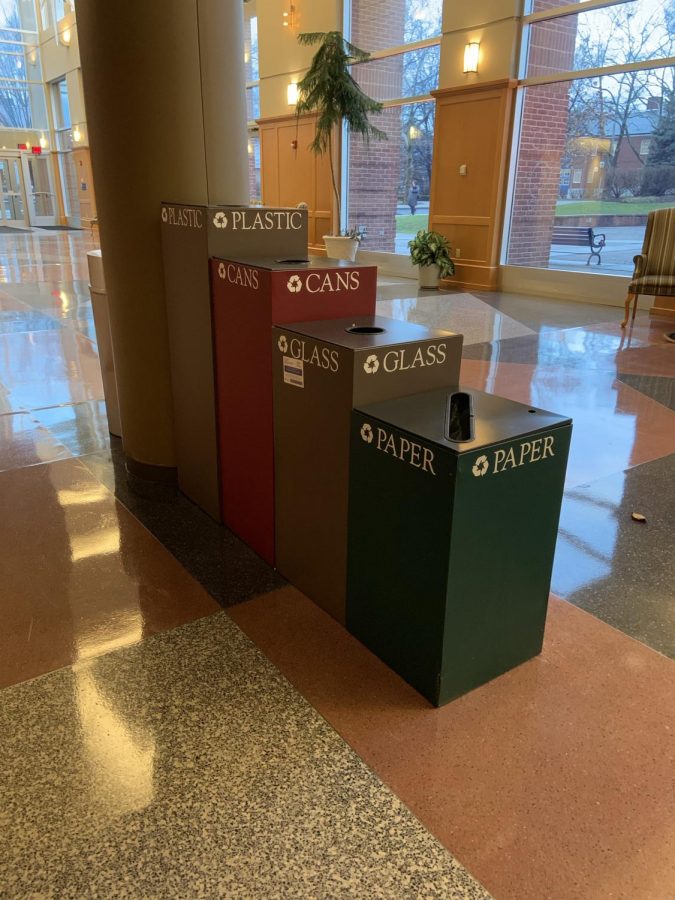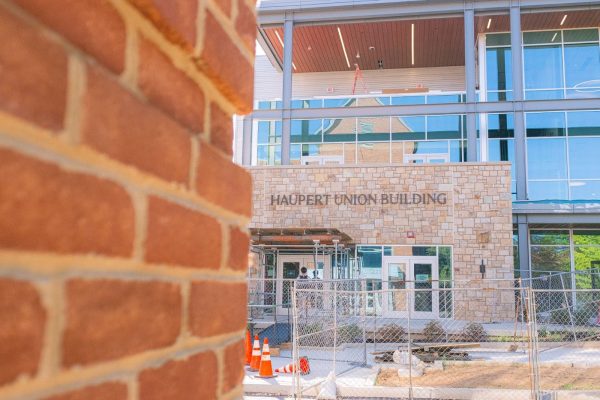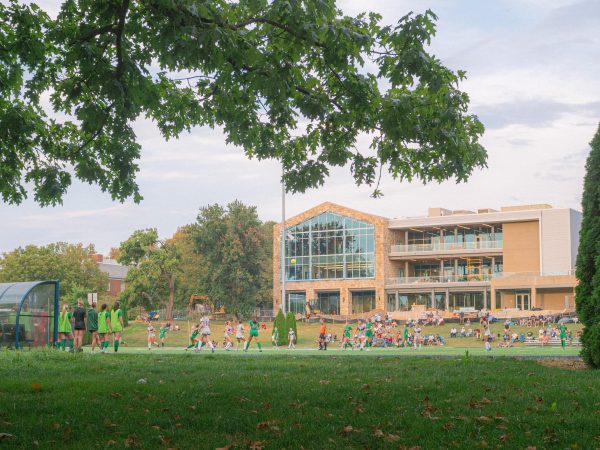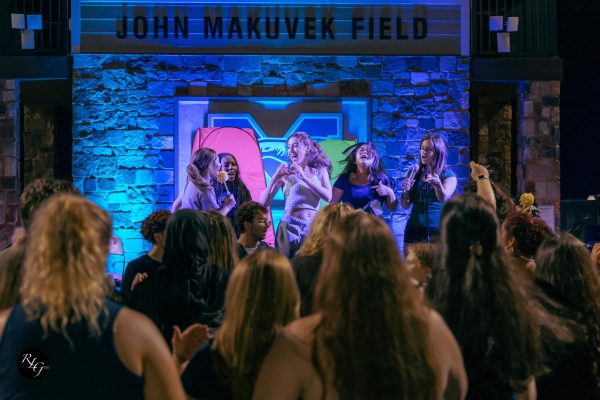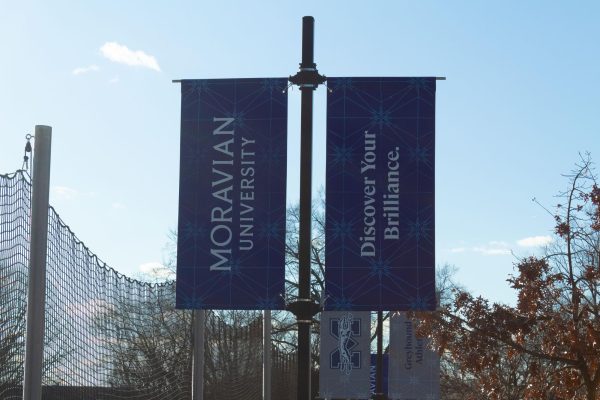ECO Club Works to Reduce Trash on Campus
Garbage cans and recycling bins in PPHAC invite students and faculty to properly dispose of their waste and practice environmentally friendly procedures.
Moravian College students, faculty, and staff sent 968.3 tons of waste to the landfills in 2017, a 10 percent jump from what Moravian sent to landfills in 2016, according to Waste Management, the hauling company that removes the campus’s garbage.
However, the issue is not limited to Moravian. The United States as a whole is creating more garbage than ever. In 2015, the U.S. produced 262.4 million tons of garbage, a 25 percent increase from 1990, according to the Environmental Protection Agency.
Sophomore Alec Buttner, secretary of Moravian’s Environmental Coalition (ECO), conducted a waste audit of the Bernhardt-Wilhelm and Rau-Hassler dorms last October. He worked closely with both Nicholas DeSalvo, LVAIC director of Sustainability Initiatives, and Shari Dunham, assistant professor of chemistry at Moravian and the faculty advisor of ECO.
Buttner and a few other students, including Josh Osowiecki, ‘20, arrived in dorm circle, where workers from Facilities Services had already collected the trash from the two dorms, separating items that had been put in the garbage and those that had been put in the recycling bins, said Osowiecki.
The students participating in the event suited up in safety gear from head to toe, including goggles, a full suit, and gloves. They then went through the bags of garbage and recycling, noting the potential recyclables that had been contaminated by food waste, rendering them unfit for recycling, said Osowiecki. After all of the material was sorted, it was weighed and the group calculated statistics on the information they gathered.
One of the locations that produces the most garbage on campus is the HUB, because Dining Services is located there, said Harold Anderson, assistant director of Plant Services. Another significant source of waste is students living in residence halls.
The ECO has held a number of Weigh the Waste events to measure the amount of food waste the campus creates.
The goal of ECO’s events is to “invoke thought about the events and sustainability in general,” said Buttner.
At Weigh the Waste events, ECO students collect food that is not eaten and weigh it to see how much food waste is created on campus, said Buttner. The Weigh the Waste events were introduced in the 2017-2018 school year and continued into the 2018-2019 school year, said Dunham.
“This event is never meant to make anyone feel bad or shameful,” said Buttner. “It’s simply to shed light on the issue of food waste, which is usually overlooked.”
Buttner said that the trash chutes in Rau-Hassler contained 23.04 pounds of garbage, almost half of which could have potentially been recycled. Half the waste in Bernie-Willie could also have been recycled. Some of the most common items were food containers from the B & G and plastic water bottles, said Buttner. Osowiecki also observed a lot of soda bottles as well.
“I think having Waste Audits and Weigh the Waste events are a great way to bring people’s attention to these issues,” said ECO Club President Lauren Hildwein, ‘20, “People don’t constantly think about how much waste they produce until we put that information in front of them.”
There are many ways to reduce the amount of garbage we create, both as a campus community and individually. Moravian is working on strategies to reduce the College’s waste, said DeSalvo. DeSalvo is an integral part of accomplishing this. As the director of Sustainability Initiatives, he takes care of tasks in a variety of general areas.
“I support initiatives in waste stream management,” said DeSalvo. “Examples include organizing and participating in green collection of cardboard, styrofoam and commingled recycling during freshman move-in, improving recycling and trash collection infrastructure, and participating in trash audits done by ECO.”
Currently, Moravian is considering the creation of consistent signage on garbage and recycling bins and potentially bringing back a pre-consumer food waste composting program, said DeSalvo.
Cougle’s Recycling used to pick up the waste from campus and brought it to a Kutztown farm where it was composted, said DeSalvo. The service ran from 2012 to 2014, and in that time span Moravian composted 22,950 pounds of pre-consumer food waste.. Pre-consumer food waste is the food scraps created as part of food preparation, according to the Environmental Protection Agency. The service stopped, but it is clear that reintroducing it would be one way to reduce the amount of garbage the College sends to landfills, said DeSalvo.
On an individual level, there are a whole host of ways to reduce personal garbage. For example, students can use reusable water bottles and mugs, print double-sided papers, avoid plastic straws, and recycle plastic bottles, aluminum cans, and glass bottles, said DeSalvo.
Waste production is a significant problem on campus. Through projects such as Weigh the Waste and waste audits, and efforts to reinstate a pre-consumer composting program, Moravian students and faculty alike are working to reduce the amount of waste on campus.


